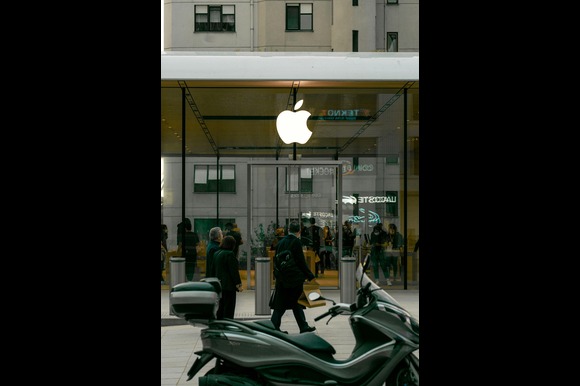The Trump administration and congressional leaders have expressed mounting concern over Apple’s proposed deal to integrate artificial intelligence from Chinese tech giant Alibaba into iPhones sold in China, according to three sources familiar with the matter.
Apple views advanced AI capabilities as crucial to the continued success of the iPhone. However, rising geopolitical tensions between Washington and Beijing may jeopardize the company’s efforts to deliver next-generation AI features in its second-largest market.
In recent months, officials from the White House and Congress have intensified scrutiny of Apple’s negotiations with Alibaba. Sources indicate that U.S. authorities are wary the partnership could enhance China’s AI capabilities, expand the influence of state-regulated Chinese chatbots, and entangle Apple more deeply in Chinese censorship laws and data-sharing regulations.
The review of the Alibaba deal is the latest in a series of challenges Apple has faced as it seeks to balance its operations between the U.S. and China. Notably, three years ago, Washington successfully pressured Apple to abandon a plan to source memory chips from Chinese supplier Yangtze Memory Technologies Co. (YMTC). More recently, tariffs imposed on Chinese-manufactured goods, including iPhones, have placed added pressure on Apple’s profit margins.
Yet, the implications of walking away from an AI partnership with Alibaba could be even more severe. China represents nearly 20% of Apple’s global sales, and the collaboration with Alibaba is considered pivotal to enabling competitive AI features on iPhones in a tightly controlled and rapidly evolving tech market. Without a local AI partner, Apple risks falling behind domestic competitors such as Huawei and Xiaomi, which are already advancing AI integration in their devices.
According to sources, officials from both the White House and the House Select Committee on China have directly engaged Apple executives to question the company’s intentions. During meetings held in Washington earlier this year, Apple representatives were asked about the terms of the deal, the extent of any data sharing with Alibaba, and whether the company would be entering into binding legal agreements with Chinese regulators. Apple executives reportedly struggled to provide detailed answers during a March meeting with the House committee.
The controversy comes amid heightened U.S. efforts to curb China’s access to artificial intelligence technology, which American officials increasingly view as vital to future military power. Fearing a possible military confrontation with China, the U.S. government has moved aggressively to restrict Beijing’s ability to develop or acquire advanced AI hardware and software, particularly through chip export controls.
Neither Apple, the White House, nor Alibaba offered public comments on the matter. Although Apple has yet to formally acknowledge the partnership, Alibaba Chairman Joe Tsai confirmed the agreement publicly in February.
Industry experts warn that the collapse of the Apple-Alibaba deal could have broader consequences beyond AI integration. Richard Kramer, a senior analyst at Arete Research, noted that Alibaba’s role as a dominant e-commerce platform could affect the visibility and sales performance of iPhones in China if the relationship between the two companies deteriorates.
Further complicating the issue is the strategic risk that U.S. technology companies might indirectly help Chinese AI firms improve their models by exposing them to more users and valuable data. Analysts and policymakers warn that companies such as Baidu, ByteDance, and Alibaba could leverage such advancements for potential military applications, raising national security concerns.
As Washington continues to take a hard line on tech cooperation with China, Apple now finds itself at the center of a delicate balancing act—one that could shape the future of its products and its role in the evolving global tech landscape.






